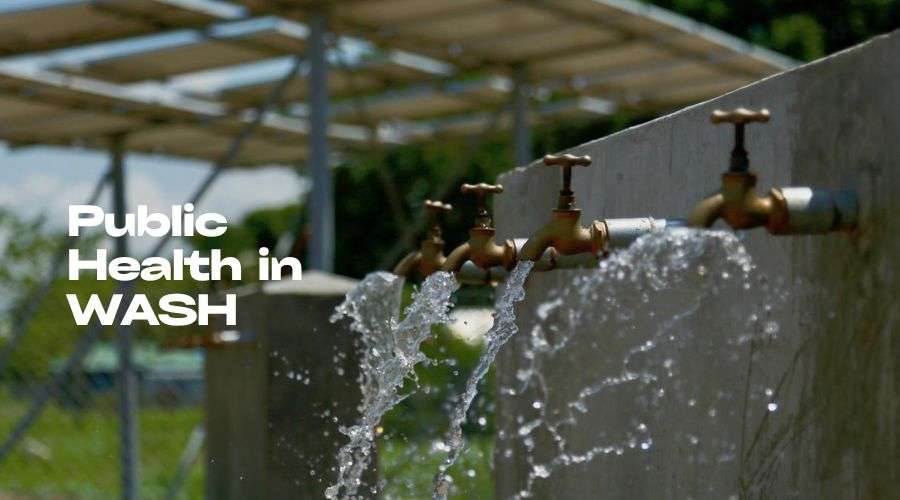
Training on Public Health in WASH during Emergencies
Public health in WASH (Water, Sanitation, and Hygiene) refers to the collective efforts aimed at promoting and protecting the health and well-being of communities through the provision of safe water, adequate sanitation facilities, and hygienic practices. It involves addressing the interrelated issues of water quality, sanitation infrastructure, and personal hygiene to prevent the spread of waterborne diseases and improve overall health outcomes.
It also encompasses efforts to ensure access to safe water, sanitation facilities, and hygiene practices in order to protect and promote the health of populations, particularly in vulnerable or emergency contexts.
This course is designed to equip participants with the knowledge and skills necessary to address public health concerns related to water, sanitation, and hygiene (WASH) during emergencies. Participants will explore the principles, strategies, and best practices for ensuring effective WASH interventions in emergency situations, with a focus on promoting public health and preventing the spread of diseases.
Target Participants
This course is ideal for public health professionals, humanitarian workers, government officials, and other stakeholders involved in emergency response and WASH programming.
What You Will Learn
By the end of this course the participants will be able to:
- Understand the importance of WASH interventions in emergency response.
- Identify key public health challenges related to WASH during emergencies.
- Analyze different approaches and strategies for implementing WASH interventions in emergency settings.
- Apply principles of risk assessment and management in addressing WASH-related hazards during emergencies.
- Demonstrate knowledge of essential hygiene promotion techniques for mitigating public health risks.
- Design comprehensive WASH programs tailored to specific emergency contexts.
- Evaluate the effectiveness of WASH interventions in promoting public health outcomes during emergencies.
Course Duration
Classroom Based – 5 Days
Online – 7 Days
Understanding Public Health in WASH during Emergencies
- Overview of WASH (Water, Sanitation, and Hygiene) and its critical role in emergency response
- Public health implications of inadequate WASH services during emergencies
- Case studies and examples illustrating the impact of WASH on public health outcomes
- Legal and ethical considerations in providing WASH services during emergencies
Assessing WASH Needs and Resources
- Conducting rapid WASH needs assessments in emergency contexts
- Utilizing tools and methodologies for assessing WASH infrastructure, resources, and capacities
- Analyzing data to prioritize WASH interventions based on public health risks and vulnerabilities
- Integrating community perspectives and participation in WASH needs assessments
Epidemiological Management During Emergencies
- Disease Investigation and Outbreak Response
- Rapid response strategies for controlling outbreaks
- Data management and analysis techniques for epidemiological data
- Monitoring the effectiveness of public health interventions in controlling disease outbreaks
Hygiene Promotion and Behavior Change
- Drinking Water Quality, Treatment and Hygiene
- Steps to Hygiene Promotion
- Applying behavior change theories and techniques to promote hygienic practices
- Developing culturally sensitive and context-appropriate hygiene promotion campaigns
Managing WASH Programs in Emergencies
- Principles of WASH program management in emergency settings
- Coordination mechanisms and partnerships for effective WASH service delivery
- Addressing challenges and mitigating risks in WASH program implementation
- Case studies and group exercises on managing WASH programs in complex emergencies
- Planning for transition and long-term sustainability of WASH interventions beyond the emergency phase
Applications of GIS in WASH and Public Health
- Spatial Mapping of WASH Infrastructure
- Field Data Collection and Mobile GIS
- Spatial Data Visualization and Communication
- Communicating Spatial Data Findings

